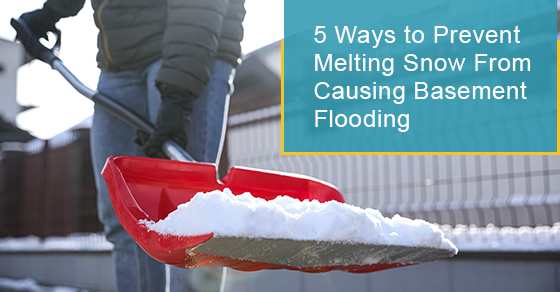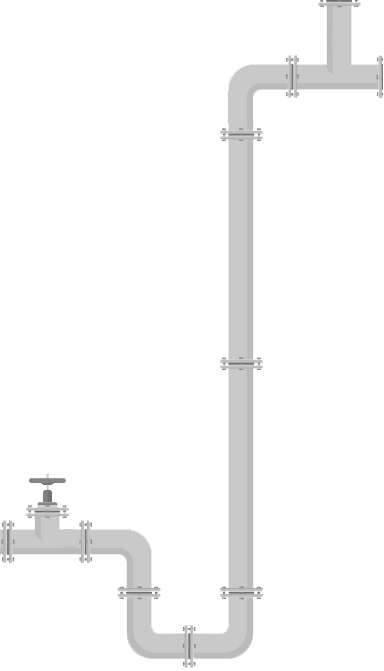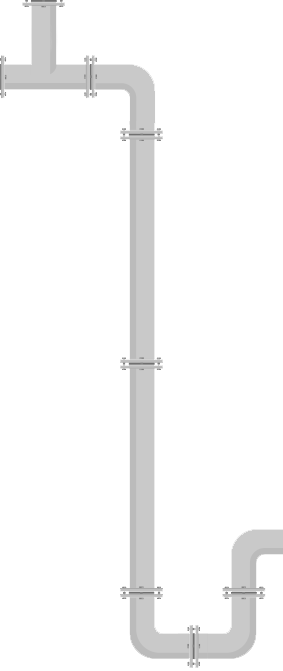5 Ways to Prevent Melting Snow From Causing Basement Flooding
Posted by Jason Genah on 15-03-2022

If there’s anything worse than a flooded basement caused by snowmelt, it’s not having Drain King Plumbers in your telephone directory. Flooded basements are a recurring nightmare, especially in the months of December until February. What might seem like a minuscule problem can quickly become very expensive and time-consuming if left unchecked.
However, at Drain King Plumbers, our solutions stem from and for human connection, as we know how essential a well-versed plumber is. Our plumbers haven’t just rectified solutions for flooded basements, but also identified the core issue that leads to excessive snowmelt: rising temperatures.
The Gist of Things: Snowmelt and Flooding
Although the intensity of snowmelt varies geographically, it is still a dreadful nightmare that you must face at every dawn of spring.
Did you know that flooding can occur when gutters and drains aren’t entirely functional? In Canada, temperature fluctuations are the norm, which indicates that there is an ever-present risk of flooding each year. However, there is a lot that can be done in advance to protect your basement from snowmelt flooding.
Let’s take a look at some of the ways you can avoid flooding in your home due to snowmelt.
1. Shovel snow away from the perimeters of your home
The foundation of your home is determined by its solidity. Experts recommend homeowners shovel snow away from their garages, basements, or the main entrance of their homes. While this might seem like a small step towards the prevention of snowmelts and flooding of basements, be assured that it goes a long way. Instead of salting the snow on the doorsteps or patio of your home, consider shovelling the snow at least 5 feet from the main entrance.
2. Inspect your drains
On the topic of drains: once you’re done clearing snow from your rooftop, the next place to inspect is the gutter and drainage system of your house and neighbourhood. Make it a point to check the gutter and drainage system twice a week to ensure there isn’t a buildup of snow or ice.
3. Use caulking
Another important factor to check off your to-do list as you prepare for spring is to examine the basement and the rooms in your house for any wall cracks. Any other preventive measure would be worthless if you’ve not caulked up your house yet, especially around windows.
For instance, if you’ve inspected your rooftop for any buildup of excess water, ice, or snow, without caulking it seems and cracks, the ice collected atop is going to melt through your roof and swell the wood and insulation installed in your house. This, of course, becomes a breeding ground for mould (but more on that shortly).
4. Debris and sump pumps
Additionally, remember to clear any debris that has been collected in your drainage and gutter system. As the transition takes place from fall/autumn to winter each year, many homeowners don’t clear out fallen leaves or branches from their drains, which then clogs the drains and creates blockages. This can cause the drainage system to malfunction, and the melted ice and snow can seep into basements, causing flooding.
Testing the sump pump installed in the basement of your house is crucial, as well. It’s advisable to do so in the harsh months of winter, instead of leaving it until the spring.
We understand that dealing with your gutter/drainage system or a sump pump isn’t a walk in the park. Therefore, Drain King Plumbers offers you a solution, wherein we can come to your basement and guide you on choosing an effective sump pump, such as a pedestal pump or a submersible pump.
5. Mould
While mould is talked about quite a lot in regards to flooding of basements, another crucial factor to consider is the risk of diseases and deterioration of one’s health when living in a house after an episode of flooding. Mould can cause significant damage in two areas of your life.
The first is the property itself. Basements can develop black mould and mildew after being flooded. The second area is the health of your loved ones and yourself.
Black mould and mildew is a type of fungus, one that can cause significant damage to your basement as it grows. The tricky aspect of mould is that it grows in concealed areas with damp atmospheres, so you might not even be aware of it. A recently flooded basement is the perfect habitat for fungus to thrive.
Breathing in mould spores is not healthy. In minor cases it can cause annoying allergies, and in more severe cases it can cause lung infections and illnesses.
Sounds like a lot to check off your list, right? At Drain King Plumbers, we can flood-proof your basement so none of these issues need to bother you, or your wallet. For more information about Drain King Plumbers in Toronto, or to book an appointment, ring us at 833-983-5663. We’re here for you round the clock, 24 hours a day, 7 days a week.




